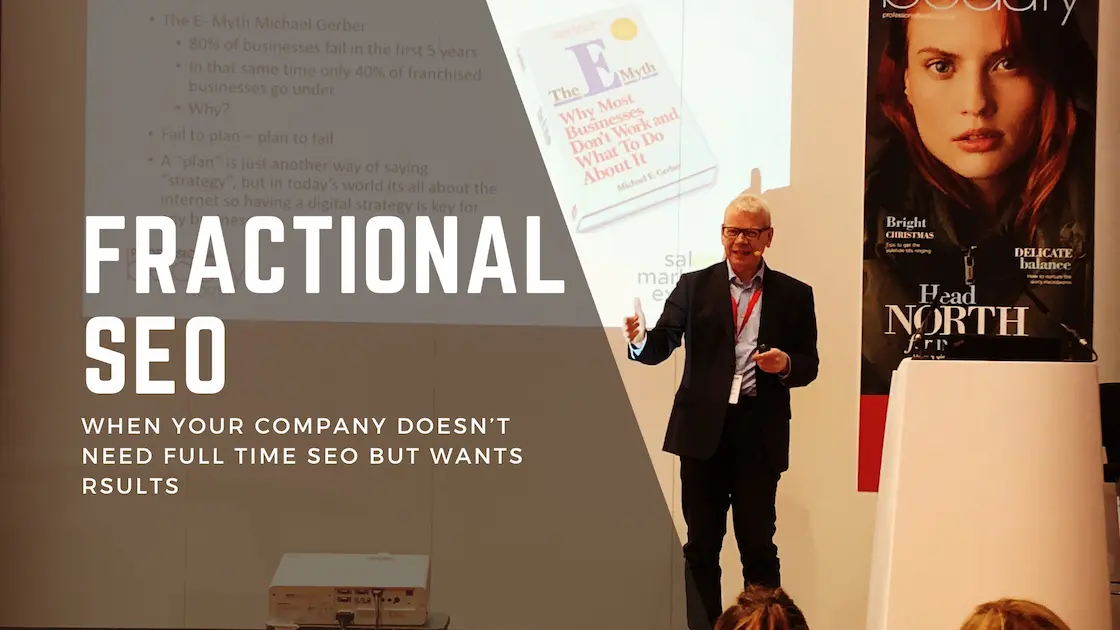It can feel overwhelming to try and improve your website’s rankings on Google. You may be asking yourself what steps you should take to improve your website’s performance on search engines. A lot of webmasters might think they should be working to build links, which is part of the equation for sure, but there is one thing you need to get right before you start boosting with signals such as links, so in this post, our focus is directed at “on-page” which is essential to improving the rankability of your website;
Here are 5 things that will help guide you in the right direction.
On-page SEO is a way to improve the visibility of your website in search engine results pages. To understand how your site could benefit from ON-page, the first thing you should consider is carrying out an audit that will identify those parts of your website that can be optimised and can be improved upon.
The content of your web pages and what is outputted on the browser is one of the most valuable areas of SEO. This not only includes the content which can be consumed by the visitor but also the code and files served to a webpage upon loading, including text, metadata visuals and multimedia, HTML, CSS and JavaScript. All these things together can be classed as content and regarded as “on-page” elements.
No matter what type of content you produce, it’s vital to optimise any site for your visitors. The reason why this is so important is that as your site can be found in the search engines and people are going to start visiting, this is called traffic and is the first part of the SEO equation, the second part, which is just as important, is the conversion and should. As the name suggests, this converts visitors into taking some form of positive action on your site, which will lead to an opportunity and eventually turn into sales and profitable customers.
You can’t be successful online if don’t have both of these parts of the equation working, so If you want your website to rank in Google and keep visitors coming back for more, and become raving fans of your brand in the process, then remember these five on-page SEO factors to help in your pursuit.
One of the principles that you should uphold at all times with On-Page SEO is that the search engines rank webpages, not websites, so targeting each and every page as individual digital assets will serve you well as if you target a distinct group of keywords for each page with little cross over, you are more likely to get greater visibility for your site and avoid keyword cannibalisation, especially on eCommerce sites.
Good content, which is both relevant and compelling is essential for getting noticed and attracting the attention of the potential customer and getting them to take the following steps of engagement.
It’s hard to be definitive about what Good content is, but it can be summed up by providing extreme value to your visitors and positioning yourself as the authority in your industry. But within that, it should be optimised through the use of keywords to attract your target customers and which should appeal to their wants and needs and contributes to solving their problems in some way.
Things to consider here are making sure your content is easy to digest by providing quality and accurate information in a clear and concise format.
By putting yourself in the shoes of your potential customer you can think about what keywords they might include in their search and then strategically insert those keywords throughout your content.
Put the needs of your readers first, not just what search engines want. And don’t resort to the spammy tactics used in the past such as keyword stuffing or other spammy techniques, Google is far too clever for that in the 21st century.
First impressions count too, so provide your visitors with what you think they should expect from you. Provide a great user experience and keep the brand and design consistent across all of the pages of your site. As well as always trying to think about how you can differentiate yourself from your competitors.
Title tags are one of the most important parts of on-page SEO, they’re treated differently by search engines than regular body text. Search engine algorithms pull metadata from these tags and use them to display your site in SERPs. ( search engine ranking pages)
Therefore, they should be accurate and precise in how it describes the content on that webpage, but should also include the main target keyword, preferably at the beginning of the title.
As search engines only usually display 60 characters of a title, be sure that your format reflects those limitations as otherwise it could be ignored and any opportunity wasted and won’t be seen by the visitor.
Title tags are incredibly powerful, and worth taking time over to get the best results.
The definition of metadata is data that describes other data and is found in a site’s HTML (the markup all websites are rendering in) and helps search engines determine what information the page contains.
Metadata (which includes your title tag mentioned above) is recognised by web crawlers and used to inform it of things like your webpages title and any descriptive text used across the whole page.
Search engines also use some of this data as the snippet you see when viewing a search engine results page and tell the visitors what the page is about so they can make an informed choice whether to click on the link or not.
It helps both your search engine and human engagement if you can optimise the metadata with relevant information to encourage web users and search engines to interact with the page.
This effects:
Historically, web crawlers prioritise websites with a high density of keywords but nowadays you’re more likely to be penalised by Google for using these tactics. To avoid negative consequences for a page stuffed with keywords, search engines are programmed to detect this behaviour and rank it lower in results.
To use keywords properly you can start by visiting Google’s own Keyword Planner which is a great way to find relevant keywords and phrases for your niche for free. However, to research keywords correctly and more in-depth, industry professionals like us use other sources too as it has been shown that sometimes Google keyword planner can be restrictive.
When choosing keywords you have to think a little bit deeper about the content you’re planning to create and consider the nuances which are apparent when making those decisions, things as the intent of the keyword, as well as the overall objectives of your business dependant on the type of messages you are wanting to publish, such as a sales page or informational page for example.
And while it’s ok to use keywords deliberately and strategically, you also need to strike a balance between human consumption and search engines favouring the former. It is important that content on your site is relevant, engaging and of value for human readers, but not over-optimised to the point that Google penalises you for being too biased towards the algorithm.
A common oversight is to assume that websites rank as a whole in the search engines, but you need to think more granularly. It’s the individual pages that appear in the search results, so you should be thinking of each page as its own separate entity, which is a subset of the whole site, just like chapters are a subset of a book.
So when choosing keywords think about them on a page-by-page basis.
Another thing to consider with your choice of keywords is intent. This is the proposed intention of the searcher and so needs to be reflected in the page you are creating.
The main search intents are
Navigational: people looking for a specific website such as Linkedin or Google for example.
Informational: as the name suggests, it’s where people are looking for specific information.
Transactional: If you are building out a sales page or a store, these are typically the type of intent keywords you could optimise for and are quite specific and can use modifiers such as “buy” or “deal” or “coupon” for example.
Commercial: This is typically used by people who are interested in buying a specific product/service but are doing some research prior to purchase, so maybe using modifiers such as “review”, top” or “best” with your keyword is the way to go here.
As you can see, choosing keywords is a little more nuanced if you want to do it correctly and takes a little more time, but as you’re the expert in your business, you’ll have most of those keywords in your head already, it’s just a matter of thinking about it more and strategy.
A picture says a thousand words as the saying goes, and it’s right, Images are a great way to attract your customers and hold their interest on your website.
However, it’s easy to overlook the fact that placing large images on your site can slow it down to a crawl, especially on mobile and therefore resulting in a poor user experience.
Limiting the size of the image file you upload, as well as using compression tools is an easy fix to help overcome this problem and in the process optimise them for your site.
One further step you should take is to edit them to the appropriate dimensions, which will help optimise those images further.
Touching on metadata for a second in relation to images, always make sure your image file names are keyword-friendly and your alt text for each image is descriptive will help even further.
These enhancements make your site more searchable by Google, more user-friendly and load a lot faster.
This is growing in importance for Google as they see the performance of websites and how fast they load as a major issue as far as user experience is concerned.
They are actively seeking to resolve the problem and doing something about it, much in the same way they did by forcing positive changes to SSL certificates and mobile-friendly websites.
As of May 2021, Google announced that it had introduced Core Web Vitals as a ranking factor, but that has yet to be shown to be the case from the tests that I have seen.
Nevertheless, this is a metric that Google has used as part of the Search Console tool, and focuses primarily on website loading speeds using metrics such as LCP (Largest Contentful Paint), FID (First Input Delay) and CLS (Cumulative Layout Shift).
If you want to know more about on-page SEO and would like to get a professional opinion on your website by requesting a FREE website review get in touch to book with one of our optimisation experts using this link to book a call



© 2007 - 2025 Black And White Boy SEO with From Blackandwhiteboy.com